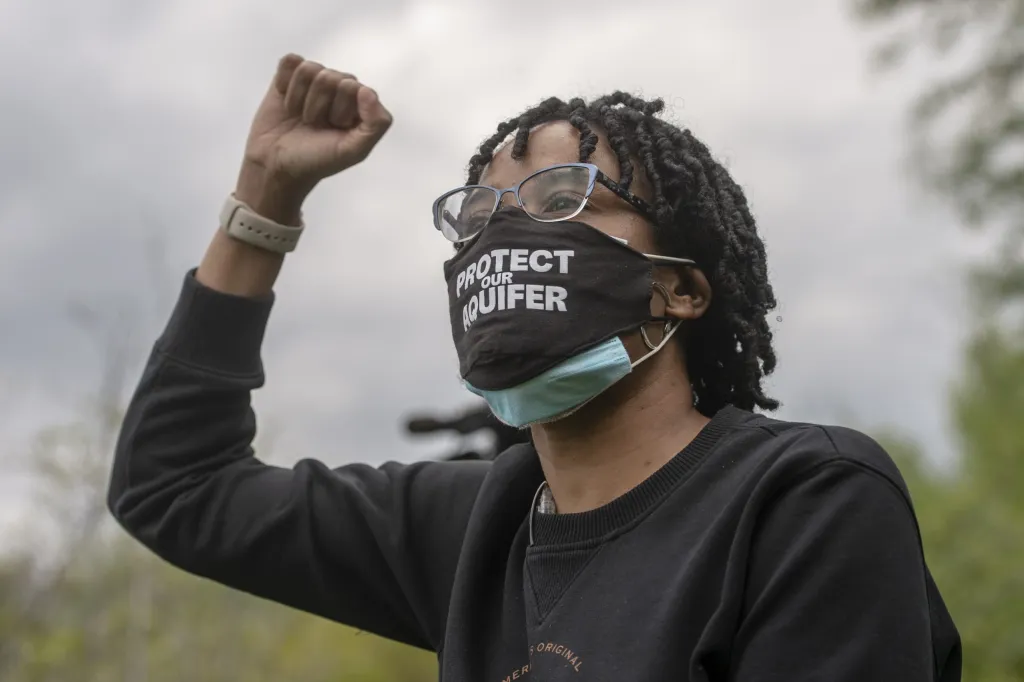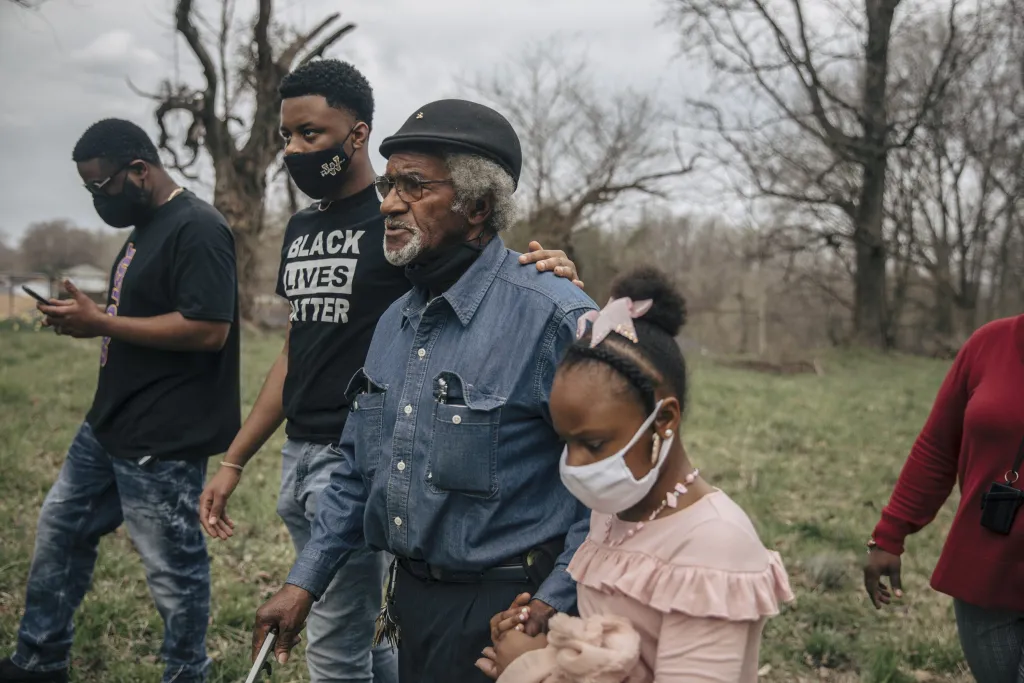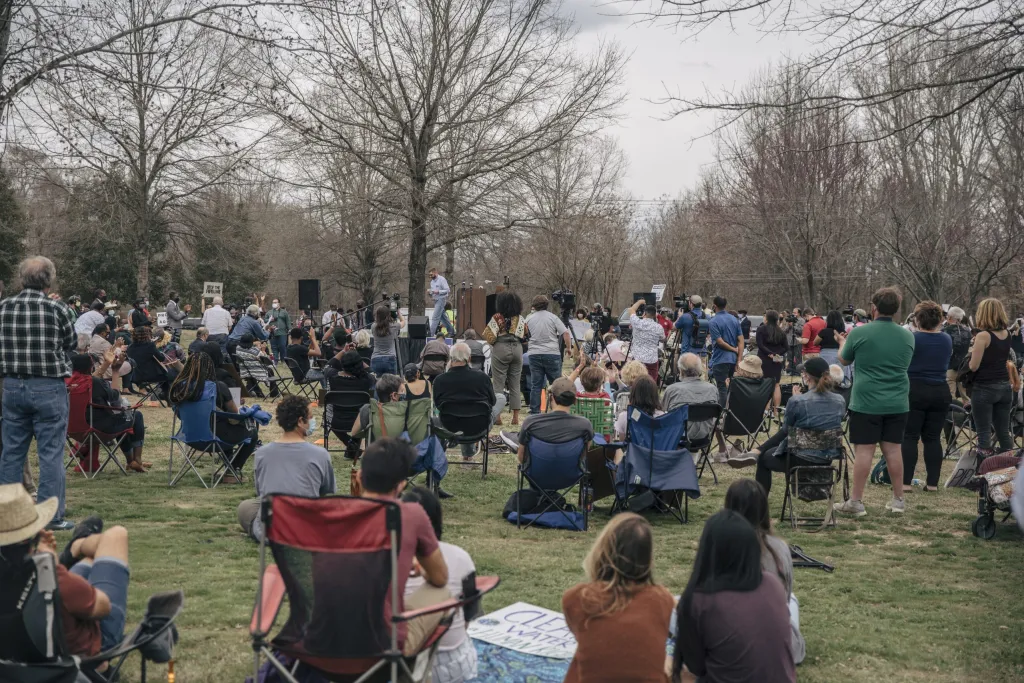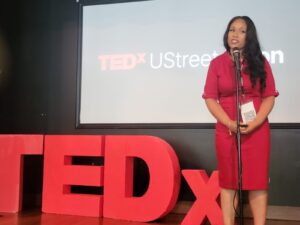
EDITOR’S NOTE: This informative and compelling commentary by Kathy Robinson was originally published in a June 20, 2022 report by MLK50
TENNES-SEE SOUTHWEST MEMPHIS

Throughout the years, I’ve seen so much love, strength and resilience in Southwest Memphis. That is why, when I read an MLK50 article in September 2020 about Plains All American of Texas wanting to build a pipeline in the area, I felt compelled to act.
The article reported that while the locals were against it by a large majority, elected leaders were mostly remaining silent. It said that a Plains All American representative called choosing Boxtown “a point of least resistance.” I didn’t know what to do, but I knew I had to do something.
Eventually, the community galvanized and we became stronger, together. The voices thought to be least resistant began to roar like a mighty lion. Even those who may have once thought this was a losing battle started to believe the impossible: that a small, low-income, Black community could go to war with a billion-dollar oil company.
Our arguments were the facts. We argued that the cancer rate in Southwest Memphis was four times the national average. We discussed poor air quality days in Memphis’ urban areas. We highlighted how local organizations that mainly fight for marginalized communities took donations from Plains and were mostly silent for a large portion of the fight.
LEADING THE CHARGE

It was emphasized that low-income areas such as Boxtown are targets for these types of projects from big oil companies. We talked about Plains ‘poor track record with safety. These arguments, along with others, became our rallying cry.
As a result of the community’s steadfastness, most of us consider the pipeline’s cancellation a victory and, one year later, we’re still celebrating.
However, today I ask, who was the cancellation a victory for?
It is often said that the price of victory is high, but so are the rewards. Local politicians are now using the cancellation of the pipeline as a marketing tool to tout for re-election. Local nonprofit organizations have received more donors willing to give to environmental causes. Environmental groups are referencing the abandonment of the Byhalia Connection Pipeline to rally their respective partners nationwide. Community activists and reporters, deservingly so, are still receiving acknowledgment and accolades for their contributions in stopping the construction of the pipeline. — Kathy Robinson
Yet Southwest Memphis faces mostly all the same problems it did a year ago. There remain over 17 toxic sites in the area (33 across South Memphis), including Valero, which continues to release toxic gas into the air. The Shelby County Health Department reports that there are multiple ambient monitoring systems that can access pollutants in the air in Shelby County, but none are in Southwest Memphis, where one could argue that those systems are most needed. Moreover, late last year, community members were still fighting to keep public transportation in Boxtown.
If we compare this community win to the game of chess, it is not hard to determine the pawns.
There are still real areas of need in Boxtown and there are still environmental concerns. The problems did not magically disappear when the pipeline project was canceled. The pipeline fight simply highlighted the needs of Boxtown and Southwest Memphis in a major way. According to 2020 Census numbers, the median income in 38109 is $31,609. The community was recently featured on ABC 24’s news broadcast to highlight the blight problems in Walker Homes/West Junction.
A proposed senior living development project is being considered for the Coro Lake area in Westwood, which some neighbors fear would cause traffic congestion on the two-lane road coming into the community. Traffic congestion increases vehicle emissions and degrades ambient air quality and can cause excess death. These fights for a better local environment are in the shadows. So are the heroes that choose to fight them.
ON ONE ACCORD

I grew up in Southwest Memphis and I have seen these heroes at work every day. I’ve seen my neighbors provide food to others, heard about them going to visit nursing homes and witnessed them getting out of bed to take other neighbors to work or school. Each Sunday, my great-grandmother, Leara Miller, who we called “Big Mama,” would make a feast for 20 or 30 people who would gather at her small unair-conditioned house in West Junction to receive nourishment from the vegetables out of her garden.
So, should we be happy that Plains All American canceled the Byhalia Oil Pipeline project? Absolutely! That pipeline would have heightened the many environmental and health hazards currently affecting Southwest Memphians. The track record of Plains indicates that they would have been a horrible neighbor in 38109 and 38116 despite the company arguing otherwise. Oil leaks were bound to happen with this company — history reveals that.
Should we still be celebrating the cancellation one year later while disregarding the other environmental issues presently plaguing or threatening the community? Absolutely not! Fighting those issues will not yield public recognition on a grand scale to boast for someone’s re-election or to win some awards. — Kathy Robinson
Should the additional resources/donors provided to local environmental groups via the fight of the Byhalia Oil Pipeline be used in at least a small capacity to assist Southwest Memphians to fight current and future environmental threats?
That’s a question for those still claiming victory and reaping the donations based on the fight made possible by the resiliency of the citizens in Boxtown.
RELATED STORIES
ABOUT THE WRITER: Kathy Robinson is a fourth-generation resident of Southwest Memphis. She graduated from Dillard University of New Orleans, Louisiana where she majored in public health/community health, before obtaining her master’s degree in health administration. An activist for the community in which she was raised, Kathy is a co-founder of Memphis Community Against the Pipeline.
ADVERTISE WITH US









